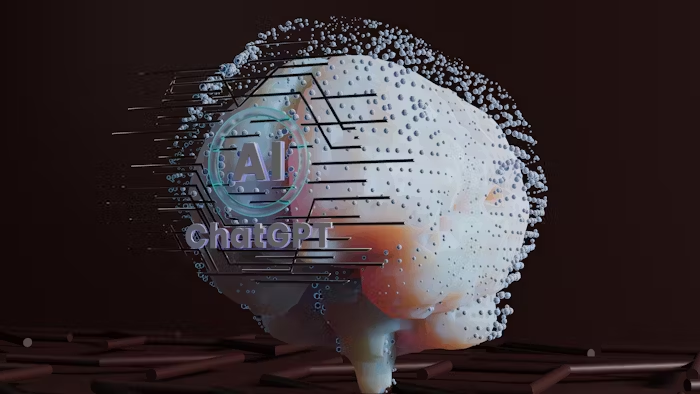In the realm of technology, quantum computing is one of the most groundbreaking innovations of the 21st century. This transformative technology has the potential to revolutionize industries by solving complex problems that classical computers find insurmountable. While the concept of quantum computing may seem daunting, its implications are vast, promising, and worth understanding.
This article unravels the basics of quantum computing, explains its mechanics, and highlights its applications in various fields. It is designed to be engaging, informative, and easy to grasp, ensuring you walk away with a clear picture of how quantum computing might shape our future.
What is Quantum Computing?
At its core, quantum computing leverages the principles of quantum mechanics — a branch of physics that explores the behavior of matter and energy on the smallest scales. Unlike classical computers, which process information using bits (0s and 1s), quantum computers use quantum bits, or qubits.

Qubits: The Foundation of Quantum Computing
A qubit can exist in multiple states simultaneously thanks to two quantum properties:
- Superposition: Unlike classical bits that represent either a 0 or a 1, qubits can represent both 0 and 1 at the same time.
- Entanglement: Qubits can become entangled, meaning the state of one qubit is dependent on the state of another, no matter how far apart they are.
These properties allow quantum computers to perform calculations at speeds exponentially faster than classical computers for specific types of problems.
How Does Quantum Computing Work?
Quantum computers operate using quantum gates, which manipulate qubits. These gates enable quantum algorithms to solve problems by exploring multiple solutions simultaneously, something classical computers cannot achieve efficiently.
For example, a classical computer solves problems sequentially, testing each possibility one at a time. A quantum computer, on the other hand, uses superposition to test all possibilities simultaneously, significantly speeding up the process.
However, quantum computing is still in its infancy. Building stable qubits and maintaining their entangled states without interference — known as quantum decoherence — remains a significant challenge.
Applications of Quantum Computing
The potential applications of quantum computing are vast, spanning industries such as healthcare, finance, cybersecurity, and logistics. Below are some of the most promising use cases.
1. Drug Discovery and Healthcare
Quantum computing can simulate molecular interactions at an unprecedented level of detail, helping researchers identify new drugs and treatments faster. This could revolutionize the way we combat diseases like cancer, Alzheimer’s, and even rare genetic disorders.
- Example: Quantum simulations could model protein folding, a complex process critical for understanding diseases and developing targeted therapies.
2. Cryptography and Cybersecurity
Quantum computing poses both a threat and a solution to modern cryptography.
- Threat: Quantum computers could break traditional encryption methods, such as RSA, which rely on the difficulty of factoring large numbers.
- Solution: They could also enable the development of quantum-resistant algorithms and enhance secure communication through quantum key distribution (QKD).
3. Financial Optimization
The financial industry deals with highly complex problems involving risk analysis, portfolio optimization, and fraud detection. Quantum algorithms can process massive datasets and identify patterns or optimal solutions far more efficiently than traditional systems.
- Example: Quantum computing could optimize trading strategies or improve predictive models for market behavior.
4. Artificial Intelligence and Machine Learning
Quantum computing can enhance the training of machine learning models by speeding up data processing and improving optimization algorithms. This could lead to significant advancements in AI capabilities, from natural language processing to autonomous systems.
- Example: Google’s Sycamore quantum processor demonstrated “quantum supremacy” by solving a problem in 200 seconds that would take classical supercomputers 10,000 years.
5. Climate Modeling and Sustainability
Quantum computers can analyze and predict complex environmental systems with incredible accuracy, aiding in climate change research and resource optimization.
- Example: Simulating carbon capture processes or optimizing renewable energy grids to reduce waste and increase efficiency.
6. Supply Chain and Logistics
Quantum algorithms can solve optimization problems in logistics, such as determining the most efficient routes or minimizing costs.
- Example: Companies like DHL and Volkswagen are exploring quantum computing to streamline supply chain management and traffic flow optimization.
Challenges in Quantum Computing
While the possibilities are exciting, several challenges must be addressed for quantum computing to reach its full potential:
- Scalability: Building quantum computers with enough qubits for meaningful applications.
- Error Correction: Quantum systems are highly susceptible to errors due to environmental interference.
- Cost: Quantum computing infrastructure is expensive and currently accessible only to large organizations and governments.
- Expertise: The technology requires highly specialized knowledge, limiting widespread adoption.
Despite these hurdles, investments in quantum research are growing, with governments and tech giants like IBM, Google, and Microsoft leading the charge.
The Future of Quantum Computing
The next decade will likely see quantum computing transition from a niche technology to a mainstream tool. Here’s what the future might hold:
- Hybrid Systems: Classical and quantum computers working together to solve problems more efficiently.
- Accessible Quantum Cloud Services: Platforms like IBM Quantum Experience already offer quantum computing as a service, making the technology accessible to researchers and developers.
- Commercial Applications: Industries such as pharmaceuticals, finance, and logistics will lead the adoption of quantum solutions, driving real-world impact.
As quantum computing matures, its integration into various fields will redefine how we solve problems, innovate, and interact with technology.
Why Understanding Quantum Computing Matters
Quantum computing isn’t just a technological buzzword — it’s a paradigm shift that could reshape industries and societies. Here’s why you should care:
- For Innovators: Quantum computing opens new avenues for innovation, from product development to problem-solving.
- For Businesses: Companies that adopt quantum strategies early will gain a competitive edge.
- For Individuals: Understanding quantum computing prepares you for a future where this technology influences everything from healthcare to cybersecurity.
The time to learn and adapt is now. Whether you’re a tech enthusiast, a business leader, or simply curious, grasping the fundamentals of quantum computing can position you ahead of the curve.
Quantum computing represents the next great leap in technology, offering unparalleled capabilities for solving complex problems. From revolutionizing drug discovery to optimizing financial systems and combating climate change, its potential applications are transformative.
While challenges remain, advancements in quantum research and growing investments signal a promising future. By staying informed and exploring its possibilities, you can be part of the quantum revolution — a movement that could redefine technology and society as we know it.










